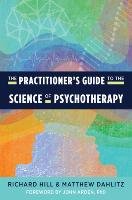The twenty-first-century psychotherapist can no longer be constrained by specific schools of practice or limited reservoirs of knowledge. But this new "era of information" needs to be integrated and made manageable for every practitioner. This book helps therapists learn more about this new knowledge and how to apply it effectively.
In this single-volume learning resource, Richard Hill and Matthew Dahlitz introduce practitioners to the many elements that create our psychology. From basic neuroscience to body-brain systems and genetic processes, therapists will discover how to become more "response-able" to their clients. Topics include neurobiology, genetics, key therapeutic practices to treat anxiety, depression, trauma and other disorders; memory; mirror neurons and empathy, and more. All are presented with case studies and treatment applications.

